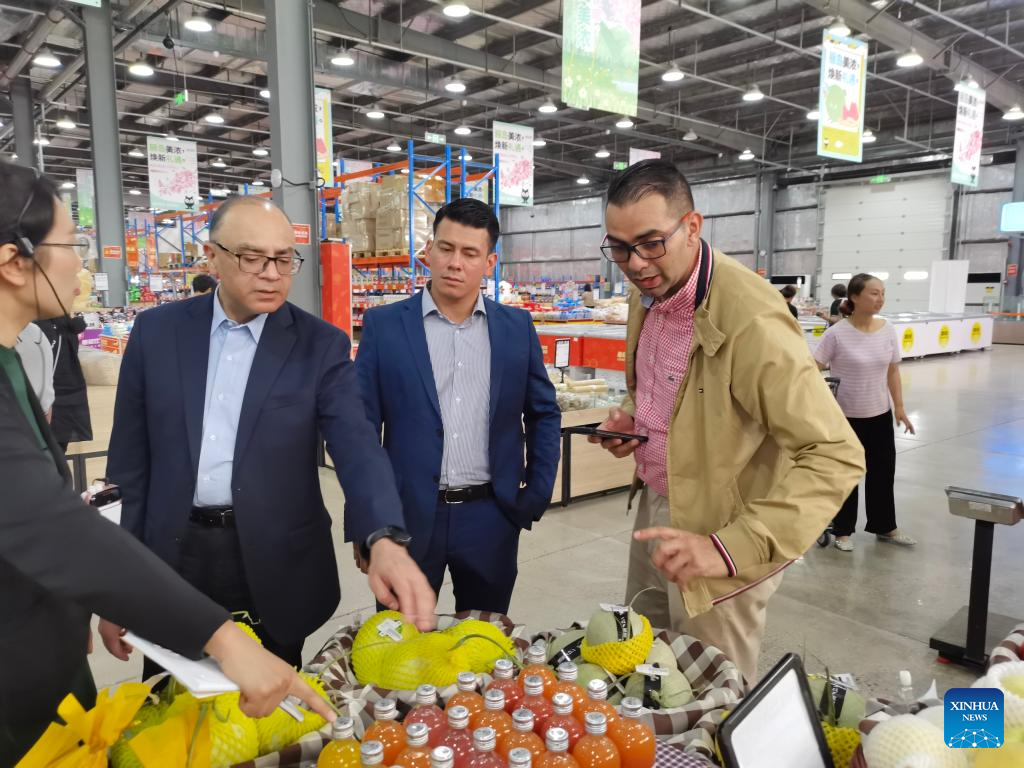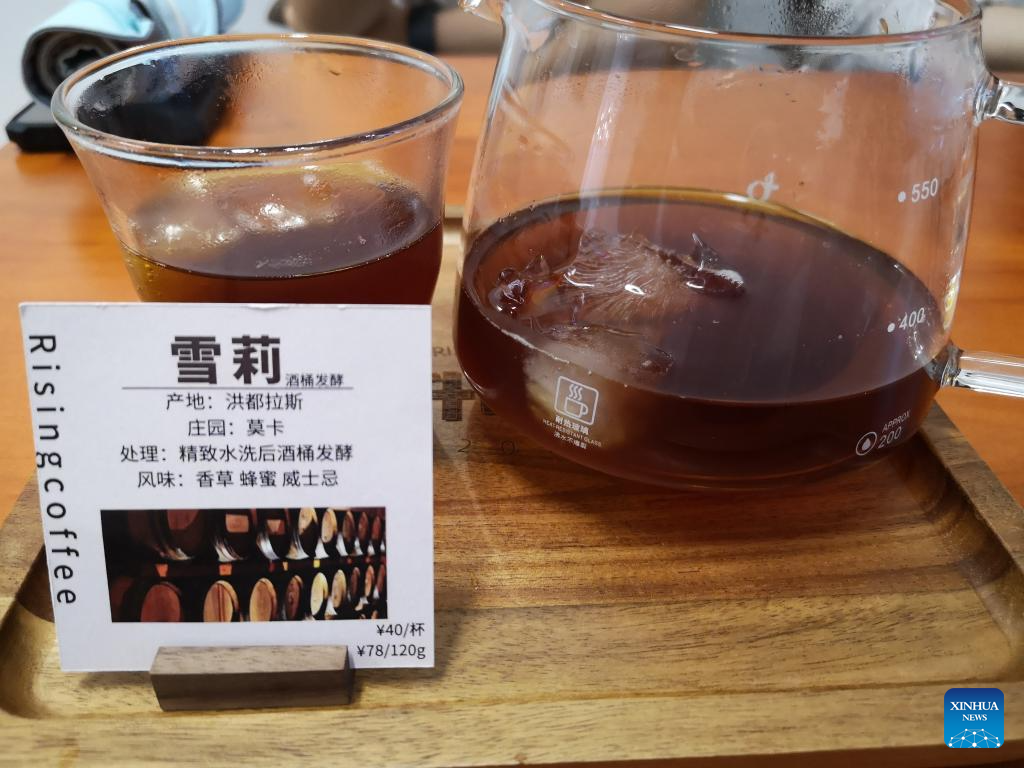China Focus: Honduran agricultural entrepreneurs eye business opportunities in China
In a cozy cafe on a summer afternoon, a group of customers eagerly placed their orders for iced coffee infused with the rich aroma of wine from Honduras.
As they sipped the refreshing beverage it left a lingering sensation on their palates, enchanting their taste buds.
Huang Qi, the owner of the cafe called Rising Coffee, reminisced about her maiden encounter with this exquisite barrel-fermented Honduran coffee back in 2018.
"I was greatly attracted by its flavor, which properly blended barrel-fermented scent into coffee beans," Huang said, adding that the distinct flavor prompted her to introduce the Honduran coffee in her cafe despite its rarity in the Chinese market.
The coffee soon gained popularity, with many customers coming from far and wide to savor it. "Coffee gave me a better understanding of Honduras, and I hope more high-quality Honduran coffee will be available on the Chinese market in the future," Huang added.
In March, China and Honduras signed a joint communique in Beijing on the establishment of diplomatic relations, making Honduras the 182nd country to have diplomatic ties with China.
With the bilateral relationship off to a good and speedy start, brimming with dynamism and potential, Honduran entrepreneurs are looking forward to exploring lucrative business opportunities in China.
Honduras is one of the world's leading producers of coffee. According to statistics, coffee is the country's main agricultural export, accounting for about 30 percent of its agricultural output. More than 120,000 households in the country are engaged in the coffee plantation industry.
Michel Baradat, a coffee entrepreneur hailing from Honduras, represents the fourth generation of his family engaged in the coffee plantation.
His family has eight coffee plantations that each year produce about 70,000 bags of coffee beans, which are exported to the United States, Italy, Britain, Belgium, Australia and other countries.
In his quest to delve deeper into the vast coffee consumption market in China, Baradat accompanied a cohort of Honduran entrepreneurs on a recent visit to Nanjing and experienced the vitality of China's economic development.
He sensed enormous potential within China's coffee market and noticed a growing trend among Chinese consumers to pay greater attention to the origin, the degree of roasting and the flavor of coffee. Fueled by this realization, he became eager to introduce premium Honduran coffee beans to the Chinese market.
"I'm looking forward to meeting more Chinese coffee professionals at the upcoming international coffee conference in Kunshan in Jiangsu Province, which can promote coffee trade between the two nations," Baradat said.
Besides coffee, Honduras is rich in other items such as shrimp, bananas and melons.
Andrea Sierra runs a fresh export company in Honduras, mainly producing and processing white shrimp, which are currently exported to the United States, Japan and other countries.
Sierra has studied Chinese due to her interest in traditional Chinese culture. During a visit to a supermarket in Nanjing, she carefully checked the origin, color and shape of white shrimp. She also asked the supermarket staff about consumer preferences and selections.
Sierra found that Chinese consumers place a higher value on the origin, flavor and freshness of aquatic products, which made her quite confident that Chinese customers will favor delicious Honduran shrimp.
"Our products are raised in a natural environment without the addition of any chemicals. They have a good and fresh flavor," she said.
According to Melvin Redondo, a senior official with the Ministry of Economic Development of Honduras, China places great emphasis on the quality and efficiency of agricultural development, taking into account the benefits to the economy, society and environment.
He expressed the hope that the two countries can advance their cooperation and carry out exchanges between technical personnel in the agricultural sector, which will benefit more Honduran people in economic and other sectors.

Honduran entrepreneurs visit an industrial park for cross-border e-commerce in Nanjing, east China's Jiangsu Province, June 7, 2023.

This photo taken on June 12, 2023 shows a cup of coffee made from Honduran coffee beans at a cafe in Nanjing, east China's Jiangsu Province.
Xinhua
Other posts by Xinhua
Contact author
blog comments powered by